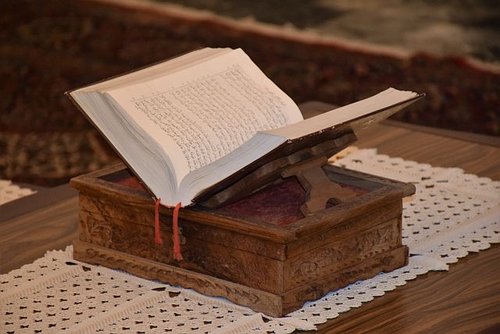Life Returning to Syria
2019. április 29., hétfőIn late March, a sizeable delegation visited the Evangelical churches of Lebanon and Syria, signing memoranda of commitment. We have asked the delegates about their experiences in the Middles East, including the situation of local Christians as well as the significance and further possibilities of cooperation.
‘It is destroying a flourishing country with its tangible, millennia-old cultural heritage, and threatening the carefully maintained religious and ethnic balance that has been developed over the centuries,’ says Bishop István Bogárdi Szabó of the Danubian Reformed Church District, when asked to describe the civil war that has been raging for eight years. Eleven million refugees, half a million victims, villages and cities in ruins, but those who have stayed behind or have since returned ‘are seeking opportunities for new life amid the ruins with a level of enthusiasm that is both admirable and touching,’ concludes the Ministerial President of the Synod.
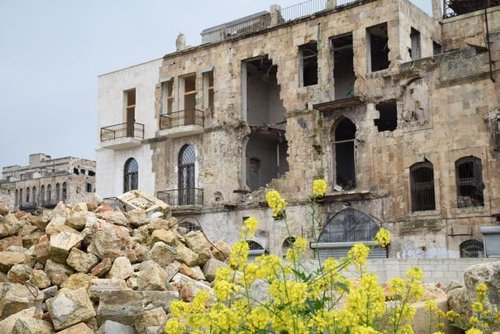
A meeting of East and West
‘We are not powerful enough to rebuild Syria ourselves, but we directly support the community work of local Christian churches, because they create a home for others as well,’ adds Balázs Ódor, Head of the Ecumenical Office of the Reformed Church in Hungary (RCH). It was in the first half of the 2010s, after the war had broken out, that our church – which is considered to have a strong position within the World Communion of Reformed Churches (WCRC) – started focusing on the region with the aim of supporting the Presbyterian community of the Middle East, who constitute a double minority as a Christian community on the one hand, and a Protestant one on the other.
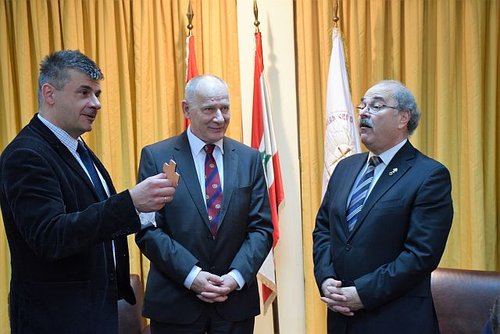
The first personal meeting took place in 2016, with the help of our Swiss and German partners. Since then, our relationships have been progressing at a rapid pace, ‘partly because time and time again God has granted us with opportunities to meet, and also because we developed a mutual sense of trust almost instantly.’ Balázs Ódor believes the explanation lies not only in the common foundation of the Gospel, but also in the similar mentality and historical background that Hungarians share with Armenians and Syrians. ‘We all know what it means to be suppressed, alienated and misunderstood. One could say we are the east of the West, while they are the west of the East.’
Christianity has been present in Syria for two millennia, since the first Pentecost: apart from local Eastern churches, Roman Catholic and various Orthodox communities are also present in countries that are currently predominantly Muslim. It was in this religious diversity that the first Anglo-Saxon Presbyterian missionaries arrived during the awakening movement of the 19thcentury.
In this region, the Turkish rule lasted for four hundred years, and after the end of the First World War, Western Great Powers agreed to have Lebanon separated from Syria, therefore it is possible that their churches reach across national borders (just like Hungarian churches).
Community made visible
The past three years have been about strengthening personal relationships, receiving first-hand information and developing joint projects. In December 2017 a Hungarian delegation visited Beirut, Homs, Latakia and Aleppo, and in 2018 our Middle Eastern partners travelled to Hungary. The Hungarian Reformed Church Aid has initiated two rounds of donations to support Sunday schools in Syria, the Reformed Church in Hungary offered funds for the renovation of the Armenian Evangelical church in Aleppo, and the Presidium of the General Convent has set up a scholarship programme for local church schools. ‘Signing the memoranda of commitment has been a logical next step stemming from our organically developing partnership,’ according to Diána Erdélyi, Ecumenical Secretary of RCH. Ms Erdélyi, who is also a member of WCRC’s Executive Commission, believes that the significance of the statement jointly released with the Arab-speaking and Armenian churches is that ‘we publicly announce and confirm the community we have already established.’
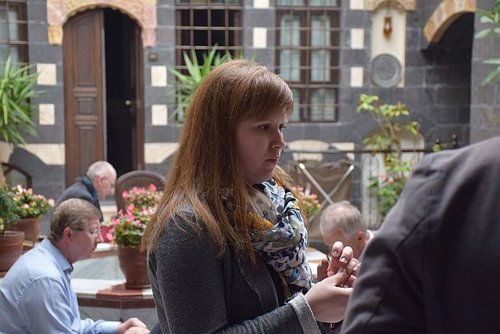
Our partner churches have also received support from the Hungarian government: thanks to the one million euros offered to each of the two communities, the Arab-speaking Evangelical church is planning to build a new church centre in Aleppo to replace their church, which has been completely destroyed, and they also wish to renovate and extend their school. The Armenian Evangelical community, on the other hand, is using the Hungarian government’s financial support to modernise its schools in Damascus and Aleppo, to replace the school buses that have been destroyed, and also to extend Bethel church centre, especially its medical facilities. ‘The implementation of the projects has been transparent and professional, our partners have been managing the funds very well,’ says Balázs Ódor, who is also responsible for liaising with locals with regard to the use of Hungarian state funds. He adds: the amounts we can offer may seem insubstantial, but even these can be used to implement significant developments, which legitimise the presence of these Protestant communities in a predominantly Muslim society, and contribute to thousands of families staying in their home country.
There was a civil war in Lebanon between 1975 and 1990, and the Syrian civil war has been ongoing since 2011, fought by government powers, the opposition as well as several extremist groups, with the involvement of a number of international great powers.
The two countries are in a unique position in the Middle East in terms of religion: despite the gradual strengthening of radical movements in Lebanon, there is a delicate balance between Christianity and Islam, but it is true even in Syria that that conditions of the Christian minority’s role in society – a minority which accounts for ten percent of the population – are guaranteed and appreciated by the Muslim majority.
The weak setting an example for the strong
‘You could not find a family that has not lost someone or not suffered some damage, and yet, they were talking to us about hope,’ recalls Zsigmond Vad. ‘It made us feel ashamed to contemplate whether we, amid our own problems but in a much more stable situation overall, actually have such hope.’ It was not only Mr Vad, Chair of the Foreign Affairs and Ecumenical Committee, who was shocked by the steadfastness of this long-suffering community, but Bishop Károly Fekete also echoed similar sentiments: ‘People in Europe seem to have a lot weaker spiritual stamina,’ whereas it is rather strong in Syria despite – or on the contrary, because – of the war. ‘Their exemplary behaviour also gives us strength to defeat our own weaknesses,’ Bishop Fekete remarks.
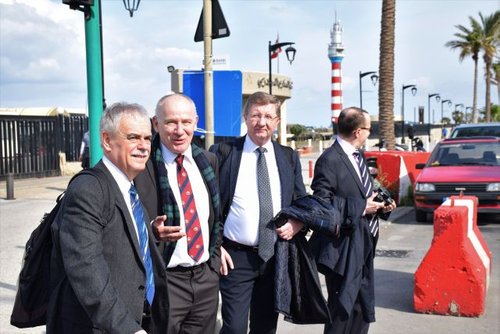
‘During the decades of Communism, we could experience how sensitive our Swiss, Dutch or American brothers and sisters were to our difficulties, how they supported us with love and inclusion for a long time,’ says Dean Zsigmond Vad, and therefore it is now our turn to help those who are in need. In 2017 the Great Church of Debrecen, where Rev. Vad serves as a pastor, was the first to offer donations to our Syrian brothers and sisters. He considers it to be his personal mission to share his experiences with as many people as possible, to provide his colleagues and surroundings with credible information about the situation. ‘It is only through being vocal about this subject that it will be revealed, through the movement of the Holy Spirit, what God wants us to do.’
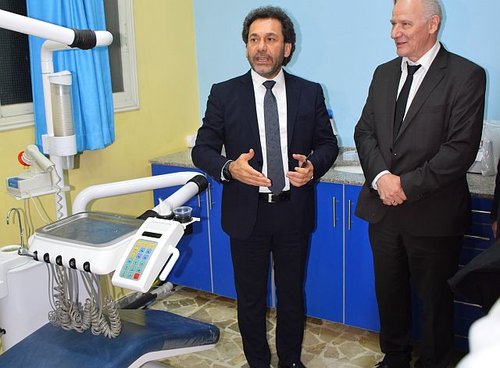
Social mission is a central focus of both churches. ‘We have seen a nursery home, a policlinic, both churches operate a few schools, and their Sunday schools welcome not only the children belonging to their congregation, but also those coming from Muslim families,’ adds Tibor Ábrám, Lay President of the Cistibiscan Reformed Church District. He feels that ‘prosperity makes us complacent, and we forget what it means to fight or work hard for something. In this respect, we have seen a great example on how to live and struggle for survival.’
Cooperation in the field of education
The headmaster of Lévay József Reformed Secondary Grammar School of Miskolc had already met the leaders of our partner churches once before in Budapest, and now he had the chance to see first-hand the situation of Evangelical educational institutions in Lebanon and Syria. ‘Their schools mostly operate amid very humble circumstances, so any financial support is much needed.’
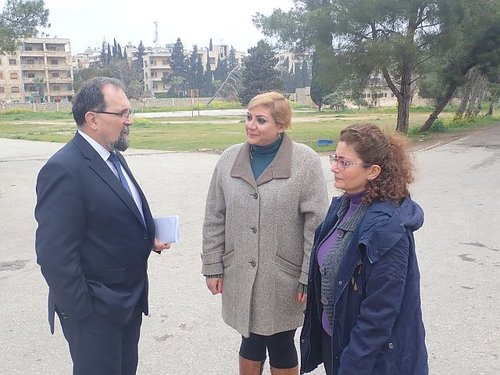
In order to discuss the possibilities of comprehensive cooperation, we need to get more detailed information about their specific needs and their school system, but it is clear even now that ‘one of the most important processes during the post-war period is the stabilisation of schools, therefore an area that Hungarian Reformed institutions could support through donations could encompass the provision of school equipment, a scholarship programme that would cover the tuition fee of those in need, as well as support for Sunday schools.’
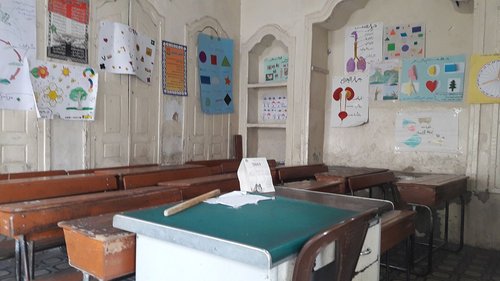
Gyula Sümeghy, Director of International Relations at Károli Gáspár University of the Reformed Church in Hungary also has mixed feelings about the trip: he was shocked by both the immense destruction on the one hand, and the will to live and the power of faith on the other. As he explains, one of Károli University’s strategic goals is to develop international partnerships – they have already signed some 250 memoranda of cooperation with 170 institutions of higher education from 36 countries, but so far they have not found partners in the Middle East. ‘Currently we are considering potential ways to cooperate with Haigazian University – an Armenian Protestant institution located in Beirut – as well as with the Near East School of Theology, also found in Beirut.’
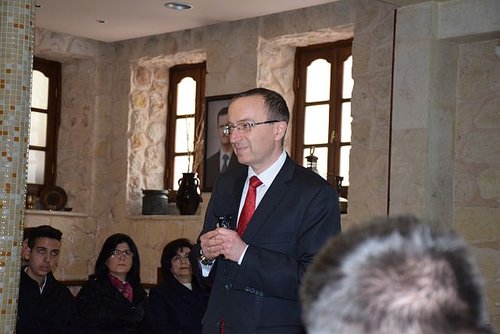
Both short- and long-term programmes could be implemented, since the foreign language training programmes of Károli have been growing steadily over the years, which are open to students arriving in Hungary within the framework of the scholarship programme called Stipendium Hungaricum and of the Scholarship Programme for Christian Young People, both initiated and managed by the Hungarian government. ‘The first Syrian scholarship student of ours, who studies international business law, is expected to graduate this summer,’ says Sümeghy, who also used to be Hungary’s Ambassador to the Netherlands. He recommends everyone to gain some experience abroad: ‘It provides us with a broader perspective with regard to our own homeland and our area of expertise, and what is more, we are all enriched by learning new languages and discovering new cultures.’
Healing the heart’s wounds
Márton Juhász, who has visited congregations in the Middle East once before, says that it is good to see that people are slowly beginning to return home, and – although there have only been small achievements so far – the reconstruction has also begun. ‘A shop has been reopened between two ruined houses, and a handful of people have been able to return to upstairs apartments as well. But even more important is the fact that the period of mourning is over, and people are more optimistic and hopeful about the future.’
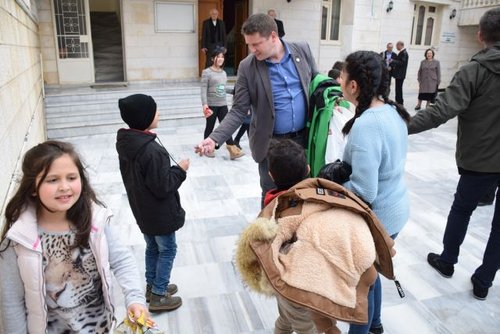
The Hungarian Reformed Church Aid, which he is in charge of, aims to contribute to the rebuilding efforts of locals, and to that end, they launched a donation campaign during Lent, following a previous campaign in 2017. Most people donated minor sums, not much more than the price of an ice cream, but one community, which happens to be a Hungarian congregation in Serbia, offered no less than 5000 euros. ‘We believe we help the most by focusing on children. Therefore the funds raised will be devoted to supporting the Sunday schools of the congregations.’
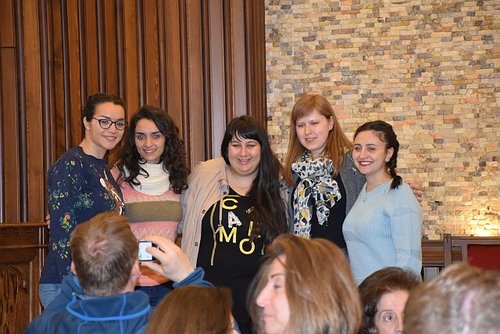
‘Christians in Syria and Lebanon have realised, that what matters even more than physical reconstruction is healing the wounds of the heart, and striving for reconciliation,’ this is what struck Szabina Sztojka, a student of theology in Budapest, the most. Apart from their educational institutions, she also considers the children and youth programmes of Syria’s congregations to be of great significance, such as the Sunday schools, where the emotional traumas of little boys and girls born and raised during the civil war can be eased in a playful and loving environment.
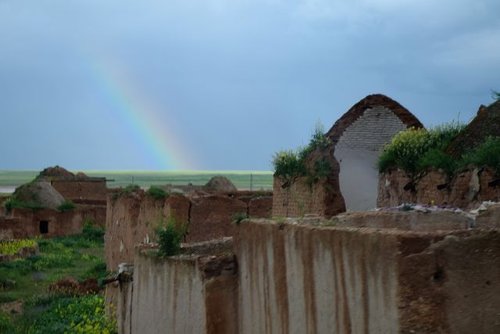
And reconciliation must also include people of different faiths learning once more to co-exist in a peaceful way. ‘During the Sunday service, a Muslim mum was sitting behind me, who came to see her child’s performance put up by the Sunday school.’ Ms Sztojka, who volunteers at the Scottish Mission in Budapest, also noted the strong presence of youth in the church: ‘The elders consider them to be their fellows in ministry, and are proud of them. These young people, in their early twenties, have undertaken considerable tasks, leading groups of forty or even a hundred, because they believe that life will eventually return to Syria.’
Read more on the recent solidarity visit of RCH church leaders to the Middle East:
Christians in Syria: God with Us
Christian Solidarity at Test in Syria
The Persecuted becoming Peacemakers
Going Against Traffic on the Damascus Road
Written by György Feke
Translated by Erzsébet Bölcskei
Photo: András Harmathy
Contact us
Click here if you are interested in twinning.
Reformed Church in Hungary
Address: H-1146 Budapest, Abonyi utca 21.
PO Box: 1140 Budapest 70, Pf. 5
Email: oikumene@reformatus.hu
English, German and Korean language services in Budapest
Links
Recommended articles
-
Pastoral Letter in the Light of the Pandemic
Bishop Dr. István Szabó sent a pastoral letter of encouragement to the ministers serving in RCH’s congregations, expressing his gratitude for the persistence and creativity of the pastors.
-
RCH Joins in Pope's Call for Prayer
RCH published the call on congregations to join the initiative of Pope Francis, supported by ecumenical organisations, to unite in praying the Lord’s Prayer on Wednesday, 25 March, at noon.
-
English Speaking Worship Services Online
Each Sunday at 11 AM (CET) the St. Columba's Church of Scotland in Budapest, the international community of RCH invites you to join the worpship service on its facebook page.
-
Test of Humanity and Companionship
Reformatus.hu asked Dr. György Velkey, Director General of the Bethesda Children’s Hospital of RCH about the challenges of health care workers and ways of prevention against the pandemic.
-
All Church Events Suspended
In light of the coronavirus the Presidium of RCH requested congregations to suspend all church events with immediate effect. Beside restrictions, it calls for prayer, sobriety and responsibility.

